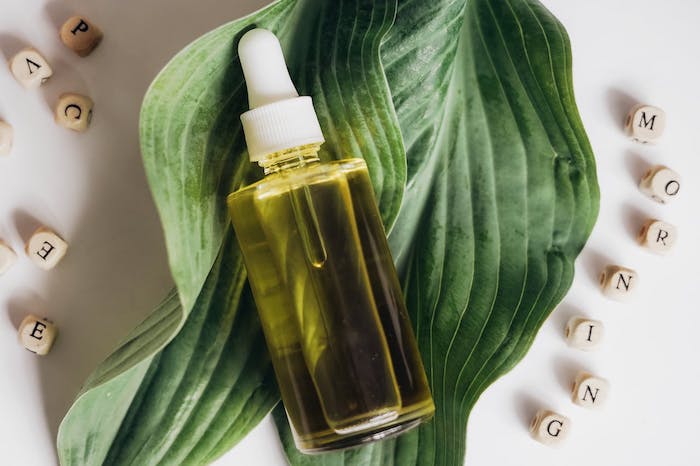Everyone seems to be talking about plant-based oils. Over the last decade or so, they’ve become the darlings of the skincare industry, touted as miracle ingredients for glowing skin.
You may have wondered: What exactly are these oils? And aren’t oils bad for your skin, especially if you have oily skin?
We want to use natural, clean ingredients on our skin—and plant-based oils qualify—but you may be unsure whether oils belong in your skincare routine.
Here’s what we know: When used correctly, plant-based oils can be one of the most nourishing and transformative additions to your skincare routine, no matter your skincare type. Yes—even oily and acne-prone skin can benefit from the right kinds of oil!
At CV Skinlabs, we use scientifically proven and medically accepted plant ingredients with the safest and most therapeutic benefits for sensitive skin. Our bio-compatible and clinically proven formulas help transform a variety of skin conditions and concerns to healthy radiant skin.
In this post, we’ll explain what plant-based oils really are, why they’ve become so popular in skincare, the science-backed benefits they offer, and which oils are particularly suited to sensitive skin.
What Are Plant-Based Oils?
Also called botanical oils or carrier oils, plant-based oils are natural oils extracted from plants’ nuts, seeds, or fruits. Manufacturers process them in various ways, but they often cold-press them to preserve their nutrients. And though it may seem that they’ve appeared relatively recently in the beauty world, they’ve been used for centuries in skincare and wellness practices worldwide.
Traditional skincare products have used mineral oil (derived from petroleum) and lab-made synthetic oils in skincare, thinking they were just as effective as natural options. But today, we know better.
Plant oils are rich in essential fatty acids, triglycerides, vitamins, and other skin-loving ingredients that the body naturally recognizes and uses, much more easily than synthetic options. Many of these oils closely mimic the skin’s natural components, making them more biocompatible and less likely to irritate the skin.
- Fatty acids: These help moisturize the skin, maintain elasticity, and support barrier repair. Oleic acid is perfect for dry skin, while linoleic acid is lighter and more suitable for oily and acne-prone skin, helping to calm inflammation and regulate the production of skin oils.
- Tryglycerides: These are naturally found in the skin and act as emollients, creating a protective layer that keeps moisture in and environmental irritants out. They help improve texture and smoothness.
- Vitamins (A, C, E): Vitamin A (retinoids) helps accelerate skin cell turnover and helps fade dark spots. Vitamin C brightens the complexion and boosts collagen production, while vitamin E is a powerful antioxidant that protects against free radical damage and supports healing.
- Polyphenols: These are antioxidant-rich compounds that help fight inflammation, reduce oxidative stress, and protect the skin from UV rays and pollution.
Plant-based oils can be used on their own, particularly as a final step in a skincare routine to seal in moisture. But they are often more effective when blended into well-formulated skincare products like serums, moisturizers, and facial cleansers.
Why Have Plant-Based Oils Become Popular in Skincare?
If plant-based oils have existed for so long, why have they become popular only recently?
Over the last decade, the beauty industry has turned toward more natural, holistic, and ingredient-conscious formulations. As consumers have become more educated about the ingredients in their products, they’ve started seeking clean beauty. Brands have responded by focusing more on natural ingredients wherever possible.
So what changed?
Scientific Backing
Over the past several years, more scientific studies have shown the benefits of specific plant oils on skin health, barrier repair, and inflammation reduction.
Clean Beauty Movement
As consumers started to turn away from synthetic and chemical ingredients like mineral oil and parabens, manufacturers had to change to continue producing products consumers would want to buy.
Ancient Wisdom Meets Modern Science
Natural oils have been used in traditional medicine for centuries. Modern extraction methods make it easier to collect and use them safely and effectively in skincare products.
Versatility
You can use plant-based oils alone or add them to serums, creams, masks, or cleansers. This versatility makes them a flexible option in skincare routines.
What Are the Benefits of Plant-Based Oils?
So what can these natural oils do for your skin? Let’s break it down.
Nourish the Skin Barrier
Your skin barrier is your first line of defense. Oils rich in essential fatty acids help replenish and strengthen this barrier, preventing moisture loss and keeping irritants out.
Deliver Deep Hydration
Unlike water-based moisturizers that evaporate quickly, oils help lock in moisture and keep the skin supple and soft. Some plant-based oils, like jojoba and squalane, even penetrate the deeper layers of skin.
Calm Inflammation
Sensitive skin, in particular, is often inflamed. Many plant-based oils have anti-inflammatory properties that soothe redness, irritation, and flare-ups. Sunflower and rosehip, in particular, help with conditions like eczema and rosacea.
Balance Oil Production
If you have oily or acne-prone skin, you may be concerned about using plant-based oils. Ironically, certain oils (like jojoba and squalane) help regulate skin oil (sebum), helping reduce breakouts. When harsh skincare products strip your skin, it reacts by producing even more sebum. Giving it a nourishing skincare product with plant-based oils can help prevent that reaction.
Protect from Environmental Aggressors
Vitamin E, polyphenols, and carotenoids found in plant oils fight free radicals, helping to slow down visible signs of aging, like wrinkles and dark spots.
Support Wound Healing
Oils like rosehip, castor oil, and tamanu help promote skin regeneration and help heal scars, making them perfect for post-acne marks or sensitive, damaged skin.

Best Plant-Based Oils for Sensitive Skin
If you have sensitive skin, you want soothing, non-clogging, and anti-inflammatory oils. Here are some ingredients that will work well in your skincare routine. (FYI: They’re all included in CV Skinlabs products!)
- Olive oil: Moisturizing and rich in antioxidants, olive oil is ideal for dry, flaky skin. It’s a thicker oil, so it’s best used in formulas rather than alone.
- Sunflower seed oil: Lightweight, calming, and rich in linoleic acid, sunflower oil supports sensitive skin and won’t clog pores.
- Jojoba oil: This one balances skin oil without irritation. It’s perfect for easily reactive or combination skin.
- Rosehip seed oil: Rich in vitamin C, along with other antioxidants like vitamin A, this oil is excellent for brightening skin, improving tone, and supporting collagen production. It’s also gentle on the skin, with properties that help heal scars.
- Castor oil: This oil has natural antibacterial properties, helps heal wounds, and deeply hydrates. It works great for calming irritation and softening dry patches.
- Squalane (when plant-derived, it comes from olives or sugarcane): This ultra-light, non-irritating, and safe oil is excellent for all skin types. It mimics the skin’s natural oils, making it a highly effective moisturizer that helps restore suppleness without clogging pores.
- Calendula oil: Known for calming and healing, this oil benefits red, itchy skin.
If you’re looking for oils for sensitive skin, keep in mind that the formulation matters. Look for safe, fragrance-free versions whenever possible, and always start with a small patch test if you’re new to oils.
How CV Skinlabs Uses Plant-Based Oils to Nourish and Repair Sensitive Skin
Founded with a mission to create safe, effective solutions for people with sensitive, compromised, or medically treated skin, CV Skinlabs makes products that are packed with nourishing plant-based oils that help heal, soothe, and restore the skin barrier.
Inside our four core products, you’ll find ingredients like the following and many more:
- Sunflower seed oil— for hydration and barrier support
- Olive oil-derived squalane — for non-greasy moisture
- Calendula and chamomile extracts — for calming inflammation
- Jojoba oil — for restoring balance without irritation
CV Skinlabs products are also free from synthetic fragrances, parabens, and toxic preservatives, making them a top choice for those with eczema, dermatitis, rosacea, or post-procedure skin.
Whether you’re new to oils or ready to elevate your skincare routine, CV Skinlabs provides a trustworthy, dermatologist-recommended option that combines the power of plants with the precision of science.
So if you’ve been on the fence, consider this your invitation to embrace the beauty of botanicals! And you can do it today with CV Skinlabs.
Are you a fan of plant-based oils?
Featured image by PNW Production via Pexels.


